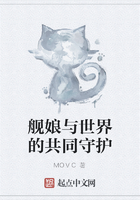ON leaving No. 19, Rischenheim walked swiftly some little way up the Konigstrasse and then hailed a cab. He had hardly raised his hand when he heard his name called, and, looking round, saw Anton von Strofzin's smart phaeton pulling up beside him. Anton was driving, and on the other seat was a large nosegay of choice flowers.
"Where are you off to?" cried Anton, leaning forward with a gay smile.
"Well, where are you? To a lady's, I presume, from your bouquet there," answered Rischenheim as lightly as he could.
"The little bunch of flowers," simpered young Anton, "is a cousinly offering to Helga von Tarlenheim, and I'm going to present it. Can I give you a lift anywhere?"'
Although Rischenheim had intended to go first to the palace, Anton's offer seemed to give him a good excuse for drawing the more likely covert first.
"I was going to the palace to find out where the king is. I want to see him, if he'll give me a minute or two," he remarked.
"I'll drive you there afterwards. Jump up. That your cab? Here you are, cabman," and flinging the cabman a crown, he displaced the bouquet and made room for Rischenheim beside him.
Anton's horses, of which he was not a little proud, made short work of the distance to my home. The phaeton rattled up to the door and both young men got out. The moment of their arrival found the chancellor just leaving to return to his own home.
Helsing knew them both, and stopped to rally Anton on the matter of his bouquet. Anton was famous for his bouquets, which he distributed widely among the ladies of Strelsau.
"I hoped it was for my daughter," said the chancellor slyly. "For I love flowers, and my wife has ceased to provide me with them;
moreover, I've ceased to provide her with them, so, but for my daughter, we should have none."
Anton answered his chaff, promising a bouquet for the young lady the next day, but declaring that he could not disappoint his cousin. He was interrupted by Rischenheim, who, looking round on the group of bystanders, now grown numerous, exclaimed: "What's going on here, my dear chancellor? What are all these people hanging about here for? Ah, that's a royal carriage!"
"The queen's with the countess," answered Helsing. "The people are waiting to see her come out."
"She's always worth seeing," Anton pronounced, sticking his glass in his eye.
"And you've been to visit her?" pursued Rischenheim.
"Why, yes. I--I went to pay my respects, my dear Rischenheim."
"An early visit!"
"It was more or less on business."
"Ah, I have business also, and very important business. But it's with the king."
"I won't keep you a moment, Rischenheim," called Anton, as, bouquet in hand, he knocked at the door.
"With the king?" said Helsing. "Ah, yes, but the king--"
"I'm on my way to the palace to find out where he is. If I can't see him, I must write at once. My business is very urgent."
"Indeed, my dear count, indeed! Dear me! Urgent, you say?"
"But perhaps you can help me. Is he at Zenda?"
The chancellor was becoming very embarrassed; Anton had disappeared into the house; Rischenheim buttonholed him resolutely.
"At Zenda? Well, now, I don't--Excuse me, but what's your business?"
"Excuse me, my dear chancellor; it's a secret."
"I have the king's confidence."
"Then you'll be indifferent to not enjoying mine," smiled Rischenheim.
"I perceive that your arm is hurt," observed the chancellor, seeking a diversion.
"Between ourselves, that has something to do with my business.
Well, I must go to the palace. Or--stay--would her Majesty condescend to help me? I think I'll risk a request. She can but refuse," and so saying Rischenheim approached the door.
"Oh, my friend, I wouldn't do that," cried Helsing, darting after him. "The queen is--well, very much engaged. She won't like to be troubled."
Rischenheim took no notice of him, but knocked loudly. The door was opened, and he told the butler to carry his name to the queen and beg a moment's speech with her. Helsing stood in perplexity on the step. The crowd was delighted with the coming of these great folk and showed no sign of dispersing. Anton von Strofzin did not reappear. Rischenheim edged himself inside the doorway and stood on the threshold of the hall. There he heard voices proceeding from the sitting-room on the left. He recognized the queen's, my wife's, and Anton's. Then came the butler's, saying, "I will inform the count of your Majesty's wishes."
The door of the room opened; the butler appeared, and immediately behind him Anton von Strofzin and Bernenstein. Bernenstein had the young fellow by the arm, and hurried him through the hall.
They passed the butler, who made way for them, and came to where Rischenheim stood.
"We meet again," said Rischenheim with a bow.
The chancellor rubbed his hands in nervous perturbation. The butler stepped up and delivered his message: the queen regretted her inability to receive the count. Rischenheim nodded, and, standing so that the door could not be shut, asked Bernenstein whether he knew where the king was.
Now Bernenstein was most anxious to get the pair of them away and the door shut, but he dared show no eagerness.
"Do you want another interview with the king already?" he asked with a smile. "The last was so pleasant, then?"
Rischenheim took no notice of the taunt, but observed sarcastically: "There's a strange difficulty in finding our good king. The chancellor here doesn't know where he is, or at least he won't answer my questions."
"Possibly the king has his reasons for not wishing to be disturbed," suggested Bernenstein.
"It's very possible," retorted Rischenheim significantly.
"Meanwhile, my dear count, I shall take it as a personal favor if you'll move out of the doorway."
"Do I incommode you by standing here?" answered the count.
"Infinitely, my lord," answered Bernenstein stiffly.














